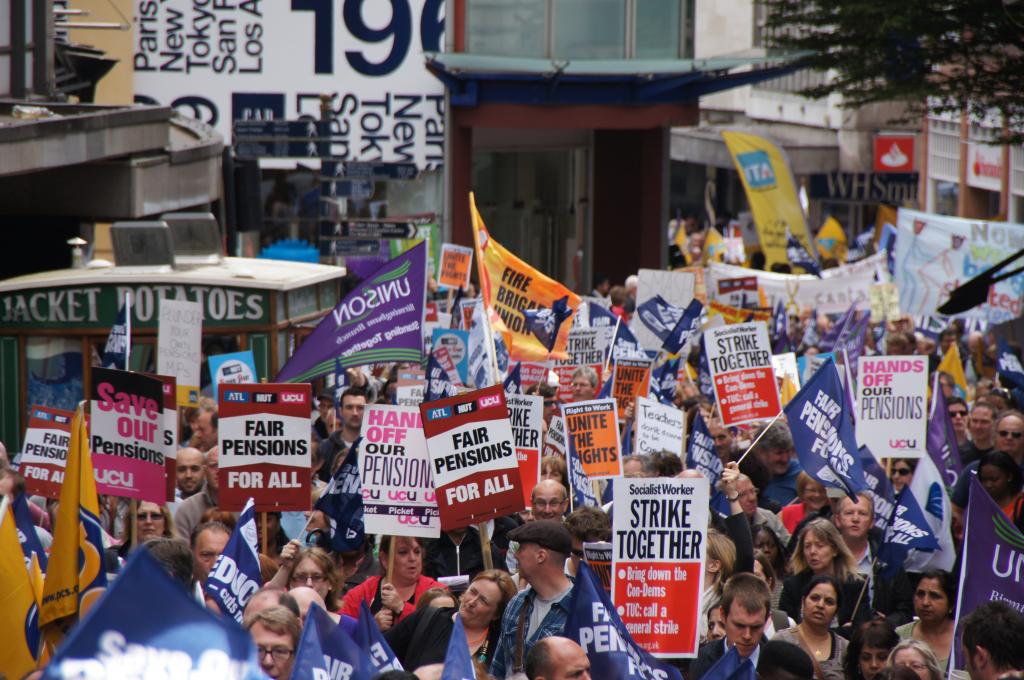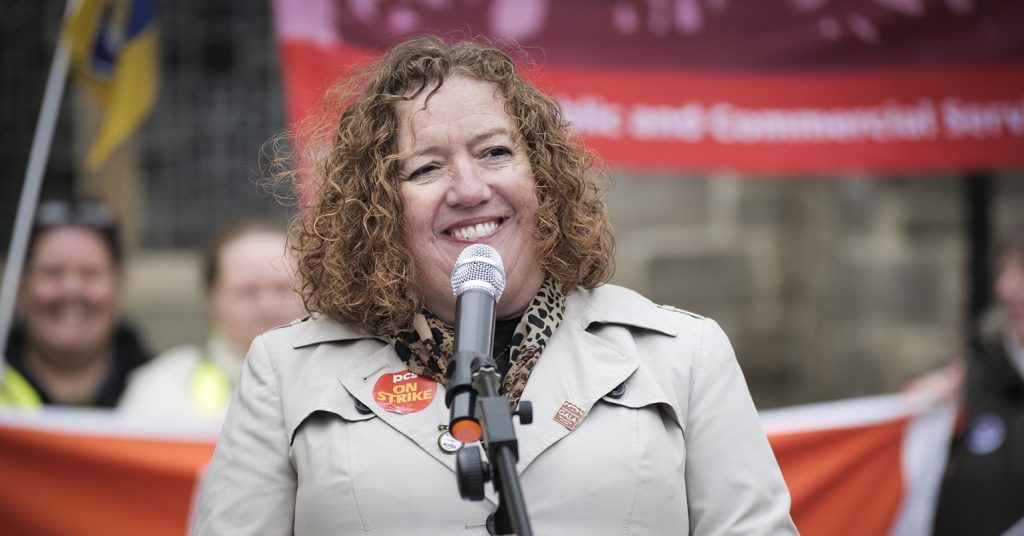Don’t give up the pensions fight

Today Unison signed a heads of agreement with the government over changes to NHS pensions. The agreement still needs approval from Unison’s health committee (and potentially the membership directly) and the full details aren’t yet public, but the guardian report:
Unison’s head of health, Christine McAnea, said the offer contained some concessions from the government, such as a pledge that staff less than 10 years from retirement will keep their existing pension arrangements, while those earning under £26,000 will escape a contributions increase next year.
That is a few workers get bought off and everyone else has the contributions increase deferred. We’ll see if the final agreement contains much more, but it’s hardly a resounding victory. Going forward all the government’s changes look like they will still happen, it’ll just take slightly longer for the full effects to work through.
The uprate for inflation will still switch from RPI to the (generally lower) CPI measure, staff will still have to work longer, contributions will still eventually increase to the same extent and schemes will still switch from final salary to career average (and not on an average equal footing).
Tomorrow we may hear of a similar agreement for the local government pensions scheme. Unison, UNITE and GMB have been in talks with the Local Government Association and are expected to set out a new set of principles and timetable for negotiations.
The unions are keen to stress that no final agreement has been made and state in a letter that “we believe that – if agreed – the principles under
discussion will provide a very positive framework for negotiations and potentially could lead to no change until 2014”.
To me, that sounds suspiciously like a very similar agreement will be reached to that in the NHS. Some concessions for staff near retirement, a delay in implementation but fundamentally the government get what they want.
Not all the unions are quite so willing to sell out their membership as Unison, UNITE and GMB, thankfully. Already over 1000 trade unionists – led by PCS, UCU and NUT though covering all the public sector unions – have signed a statement calling on the unions to reject the government’s ‘final offer’ and continue the fight.
On November 30th three million trade union members came out on strike. In Scotland fewer than 30 schools were open across the whole country, and many of them were only formally open and with significant disruption. We took part in the largest coordinated action in decades and took public support with us.
We need to continue this fight until we see real victories and improvements in our pension schemes. And next time we need even more people out on strike; we need to see the NHS staff out for their pensions; we need to work with grassroots movements in the private sector like the Sparks; we need to see private sector workers striking for their pensions too.
Trade unions won huge improvements in the working conditions, in pay, in pensions, in hours across all our lives (whether we are now members of a union or not) but we have to remember that we did it not through the skill of paid national officers and negotiating teams, but by mass direct action and solidarity between workers. If a few unions allow themselves to be bought off it undermines all of us, and it will undermine them when the government or employers come to claw back the next gain we made in the past.
We need to remain united, we need any negotiations that happen to happen in public not between small groups of officials behind closed doors and we need to realise that we have power and we have the potential to do more than “damage limitation”. The changes being imposed on our pensions are not necessary and are not inevitable. The trade union leaderships have a history of demobilising and selling out their memberships, don’t let this fight become another point to add to when they gave in too soon.




Leave a Reply